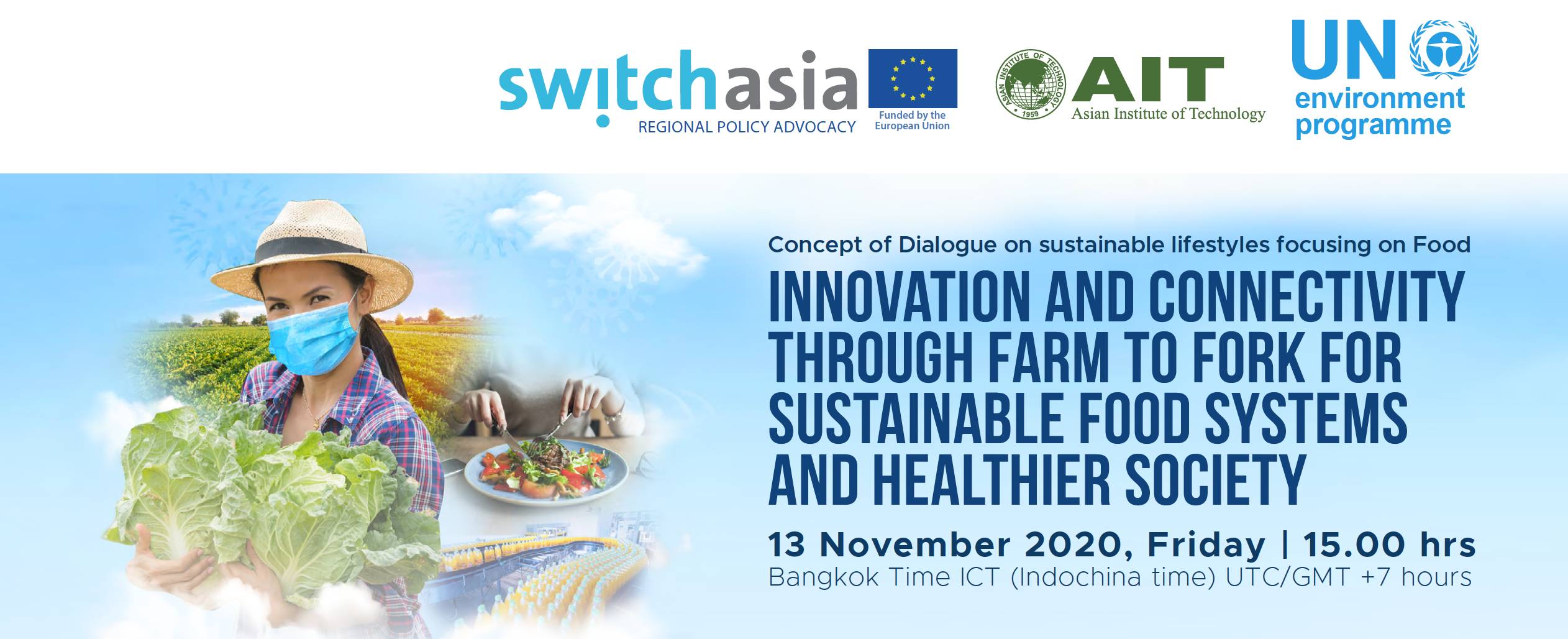
Sustainable Food Systems and Healthier Society
DATE: Friday, 13 November 2020 | TIME: 15:00 (Bangkok Time) | REGISTER Here
BACKGROUND
Our world is rapidly changing. Increasing food consumption by a growing population, together with changing dietary habits, poses an immense challenge for the global food system. A crucial question is how to meet the increasing demand for food and provide healthy diets for all for the decades to come without undermining the Earth’s resources and crossing planetary boundaries, beyond which the prospects for humanity may be threatened.
The world’s population has increased by two billion during the last 25 years and is projected to reach 8.5 billion by 2030 and 9.8 billion in 2050 (United Nations World Population Division 2017). The Millennium Development Goals contributed to a fall in the percentage of undernourished people from 23.3% in 1990–1992 to 12.9% in 2014–2016. Still, there remain more than 800 million undernourished persons in the world, and the absolute numbers are increasing. The Sustainable Development Goals (SDGs) have the ambition not only to end poverty and hunger by 2030 but also to ensure that ‘‘all people, at all times, have physical, social and economic access to sufficient, safe and nutritious food which meets their dietary needs and food preferences for an active and healthy life’’. This puts a focus on all aspects of the food systems from farm to fork, especially at a time when we are facing a pandemic of our generation that has hit hard to the food supply chain.
Case Study: A report of the EC FOOD 2030 Independent Expert group outlines an agenda for a climate-smart and sustainable food systems for a healthy Europe. The report is focused on four key areas: Nutrition for sustainable and healthy diets, climatesmart and environmentally sustainable food systems, circularity and resource efficiency of food systems and innovation & empowerment of communities. This relevant case study provides following approaches for a sustainable lifestyle focusing on Food Systems.
Target audience:
Professionals at national, sub-regional and regional level for supporting development of various policies and practices to implement circular economy in line with the national roadmaps which are being developed.
Contact:
Mushtaq Ahmed Memon
Regional Coordinator for Resource Efficiency
UN Environment Programme, Regional Office for Asia and the Pacific
Project Manager
SWITCH-Asia Regional Policy Advocacy Component
Email: [email protected]



